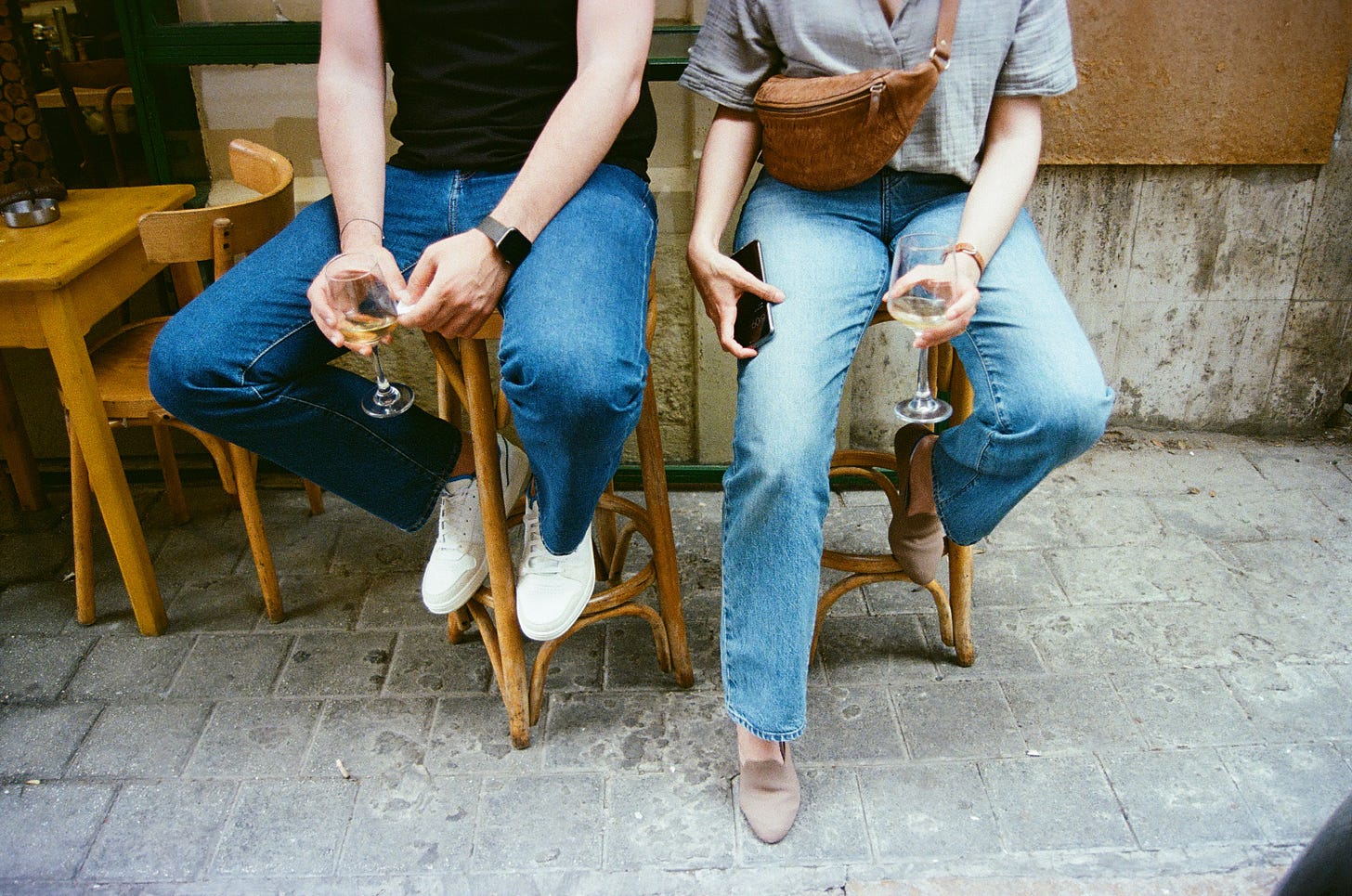May 2025: A phony with a glass of wine
Swirling all my emotions, again

It’s warm. We’ve reached chocolate-bars-in-the-fridge heat and because it’s Beirut, I’ve been meeting new people on sidewalks. Our conversations travel. That, or I’m introduced as “also from the South,” and then the stranger and …



